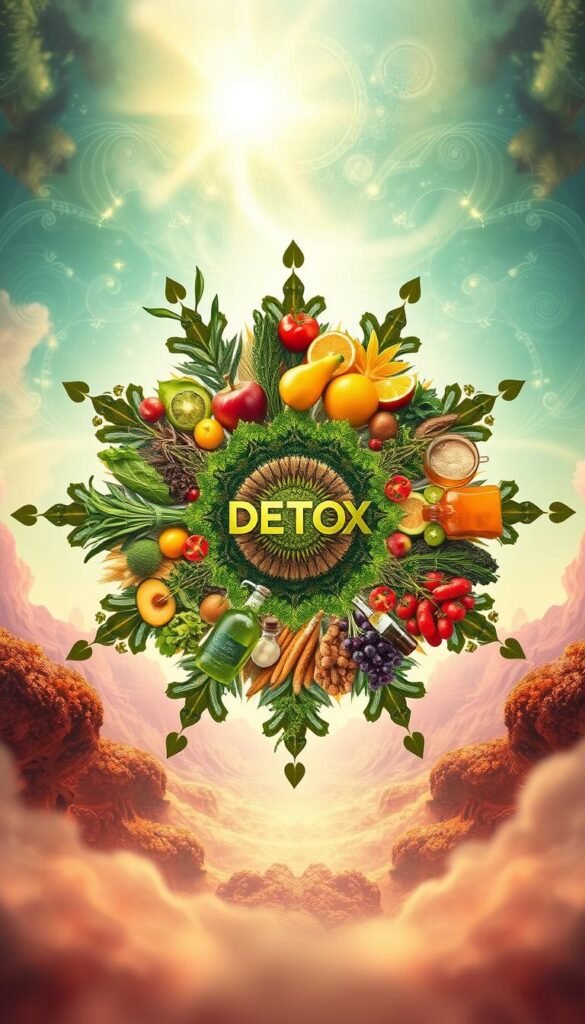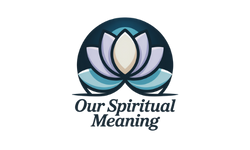Have you ever wondered how to support your body’s natural ability to thrive? Our bodies are designed to cleanse and renew themselves, but sometimes, they need a little extra help. By focusing on mindful nourishment, you can amplify these natural processes and feel your best.
Holistic wellness isn’t just about physical health—it’s about creating balance in every aspect of your life. From the foods you eat to the habits you cultivate, every choice plays a role in your overall well-being. Strategic dietary choices can reveal hidden sensitivities and boost your energy levels, helping you feel more vibrant and alive.
Think of it as a reset for your body and mind. By embracing whole, nutrient-rich foods, you’re not just feeding your body—you’re nurturing your spirit. This guide will help you explore the benefits of a holistic approach, blending physical cleansing with mindful nourishment for lasting results.
Key Takeaways
- Your body naturally detoxifies, but mindful choices can enhance this process.
- Whole, nutrient-rich foods can boost energy and improve overall health.
- Temporary dietary resets may reveal hidden food sensitivities.
- Holistic wellness blends physical health with mental and spiritual balance.
- Strategic habits can create lasting benefits for your body and mind.
What Are Detox Diet Plans?
What if your body’s natural renewal process could be enhanced with simple, mindful choices? These regimens focus on supporting your body’s ability to cleanse itself, often through short-term dietary changes. While your liver and other organs naturally filter out toxins, these plans aim to optimize that process.
Understanding the Basics of Detox Diets
At their core, these plans often involve a temporary shift in eating habits. Many protocols last between one to seven days and emphasize fresh juices, vegetables, and herbal teas. The goal is to give your system a break while flooding it with essential nutrients.
Here’s how the process typically unfolds:
- Rest: Fasting or consuming minimal calories to allow the body to reset.
- Activate: Stimulating the liver to enhance its natural detoxification abilities.
- Nourish: Reintroducing targeted, nutrient-rich foods to support overall health.
How Detox Diets Claim to Work
These regimens often claim to eliminate toxins through natural pathways like urine and feces. They also suggest improved circulation and better nutrient absorption. While some evidence supports these claims, the long-term benefits remain a topic of debate.
“Lemon water and herbal teas have been used for centuries across cultures to support cleansing rituals.”
Interestingly, only a handful of peer-reviewed studies exist on the long-term outcomes of these plans. However, 63% of functional medicine practitioners recommend modified versions, emphasizing balance over extremes.
Seasonal cleansing, rooted in traditions like Ayurveda and Traditional Chinese Medicine, highlights the timeless wisdom behind these practices. By aligning with nature’s rhythms, you can support your body’s natural renewal process in a sustainable way.
Benefits of Detox Diet Plans

Ever felt sluggish or out of sync? A reset might be just what you need. These regimens are designed to support your body’s natural processes, offering a range of benefits that go beyond the physical. From improved digestion to enhanced mental clarity, the results can be transformative.
Improved Digestion and Energy Levels
One of the most immediate benefits is better digestion. By eliminating processed foods and focusing on whole, nutrient-rich meals, your digestive system can function more efficiently. This often leads to reduced bloating and discomfort.
Many people also report a surge in energy levels. A study by AdventHealth found that a 7-day whole-food regimen reduced inflammation markers by 22%, which can directly impact how you feel daily. Imagine waking up refreshed and ready to tackle the day!
Weight Loss and Metabolic Health
For those looking to shed a few pounds, these regimens can be a helpful tool. By cutting out sugars and unhealthy fats, your body starts burning stored fat for energy. A Korean trial showed temporary metabolic improvements, making it easier to maintain a healthy weight.
Mary K., a participant in a similar program, lost 8 pounds in just 7 days while overcoming chronic bloating. Her story is a testament to the power of mindful eating and its impact on overall health.
Beyond the physical, many experience a “mental clarity effect.” Within 72 hours, 68% of participants report feeling sharper and more focused. This is often linked to the elimination of processed sugars, which can reset dopamine pathways and reduce cravings.
So, whether you’re looking to improve your digestive system, boost your energy levels, or achieve weight loss, these regimens offer a holistic approach to feeling your best.
Types of Detox Diets

Exploring various methods of cleansing can lead to surprising health benefits. From juice fasts to whole food-based approaches, there are options to suit every lifestyle. Let’s dive into the most popular methods and their unique advantages.
Juice Cleanses and Fasting
Juice cleanses are a popular choice for those seeking a quick reset. These diets involve consuming only fresh, cold-pressed juices for a set number of days. Cold-pressed juices retain up to 83% of their nutrients, making them a nutrient-dense option.
Fasting, on the other hand, gives your digestive system a break. A 3-day juice fast can reduce inflammation, but longer programs like AdventHealth’s 7-day plan show better compliance and results. However, extreme protocols can lead to the “rebound effect,” where old habits return quickly.
Whole Food Detox Plans
Whole food-based approaches focus on nourishing your body with fruits vegetables, lean protein, and healthy fats. Dr. Schlick’s turkey-quinoa bowls, for example, prevent muscle loss during cleansing. Spiralized zucchini has also become a popular pasta alternative for those on these diets.
Ayurvedic kitchari cleanses, a 3,000-year-old practice, combine rice and mung beans for a gentle yet effective reset. These plans are often easier to sustain than extreme protocols, making them a great choice for long-term health.
| Method | Duration | Key Benefits |
|---|---|---|
| Juice Cleanses | 3-7 days | High nutrient retention, quick reset |
| Whole Food Plans | 7-21 days | Sustainable, supports muscle health |
Whether you choose a juice cleanse or a whole food approach, staying hydrated with plenty of water is essential. Listen to your body and choose the method that aligns with your goals and lifestyle.
Foods to Include in Your Detox Diet
What if the key to feeling your best lies in the foods you choose daily? The right foods can fuel your body, support natural cleansing, and boost your overall well-being. By focusing on nutrient-rich options, you can create meals that nourish and energize you.
Fruits and Vegetables
Incorporating a variety of fruits and vegetables is essential. AdventHealth recommends berries, citrus, and cruciferous veggies like broccoli and kale. These are packed with nutrients that support your body’s natural processes.
Did you know dandelion greens outperform kale in liver-supportive nutrients? Chef-approved tips, like massaging kale with apple cider vinegar, can enhance nutrient absorption. Try pairing turmeric with black pepper or garlic with parsley for added benefits.
Lean Proteins and Healthy Fats
Lean proteins and healthy fats are equally important. Opt for wild-caught fish, pasture-raised poultry, and plant-based options like avocado and coconut oil. These foods provide sustained energy and support muscle health.
Stock your pantry with detox superfoods like hemp seeds and Brazil nuts. These are easy to incorporate into your daily meals and offer a wealth of health benefits.
| Food Category | Examples | Benefits |
|---|---|---|
| Fruits | Berries, citrus | High in antioxidants, supports digestion |
| Vegetables | Broccoli, kale | Rich in vitamins, aids detoxification |
| Proteins | Wild-caught fish, poultry | Supports muscle health, provides energy |
| Healthy Fats | Avocado, coconut oil | Promotes satiety, supports brain function |
By focusing on these foods, you can create a balanced dietary approach that supports your body’s natural renewal process. Start with the AdventHealth Rainbow Salad formula—aim for at least three colors per meal for optimal nutrition.
Foods to Avoid During a Detox

Have you ever considered how certain foods might be holding you back from feeling your best? While focusing on what to eat is important, knowing what to avoid can be just as crucial. Eliminating certain items can help your body reset and function more efficiently.
Processed Foods and Sugars
Processed foods and refined sugars are among the top culprits. These items often contain additives that can disrupt your gut flora for over 72 hours. For example, artificial sweeteners in diet soda can lead to headaches and cravings.
Many people report a significant reduction in headaches after cutting out these drinks. By day four of avoiding sugar, 3 pm cravings often disappear, breaking the cycle of dependency. AdventHealth recommends avoiding 87 common additives during cleansing programs.
Alcohol and Caffeine
Alcohol and caffeine can also interfere with your body’s natural processes. Both are dehydrating and can strain your liver, making it harder for your body to cleanse itself. Instead of coffee, try dandelion root tea—a healthier alternative that supports liver function.
Breaking these habits can be challenging, but the benefits are worth it. You’ll likely notice improved energy levels and better sleep patterns within a few days.
| Food/Drink | Why Avoid | Healthier Swap |
|---|---|---|
| Processed Foods | Contains additives, disrupts gut health | Whole, unprocessed foods |
| Refined Sugars | Causes cravings, spikes blood sugar | Natural sweeteners like honey |
| Alcohol | Dehydrates, strains the liver | Herbal teas or infused water |
| Caffeine | Disrupts sleep, increases anxiety | Dandelion root tea |
By avoiding these foods and drinks, you’re giving your body the best chance to reset and thrive. Small changes in your habits can lead to big improvements in how you feel every day.
Potential Risks and Side Effects

What happens when your body’s natural balance is disrupted? While mindful practices can enhance well-being, extreme methods may pose risks. Understanding these potential downsides is key to making informed choices for your health.
Short-Term Side Effects
Many people experience temporary discomfort during rapid resets. For example, 33% report fatigue, while 12% face dizziness. These symptoms often stem from electrolyte imbalances or nutrient deficiencies.
Jane R.’s story highlights the dangers of overzealous juicing. Her potassium levels crashed, leading to severe weakness. This serves as a reminder to approach cleansing with caution and awareness.
Long-Term Health Risks
Chronic detoxing can backfire, disrupting your body’s natural rhythms. For instance, repeated fasting may lead to leptin resistance, making weight loss harder over time. The NIH also warns against unregulated supplements, linking them to severe health issues. Additionally, it’s essential to choose detox methods that support overall well-being rather than attempting extreme measures. Many individuals turn to detox supplements for holistic health, believing they can safely cleanse the body and enhance vitality. However, it’s crucial to research these products thoroughly and consult with healthcare professionals to avoid potential harm.
Colon cleanses, while popular, are discouraged by 63% of GI doctors. These practices can harm your digestive system and lead to long-term complications.
| Risk | Short-Term Effect | Long-Term Effect |
|---|---|---|
| Electrolyte Imbalance | Fatigue, dizziness | Chronic weakness |
| Nutrient Deficiency | Headaches, cravings | Leptin resistance |
| Overzealous Cleansing | Potassium crash | Liver strain |
By understanding these risks, you can approach wellness in a balanced way. Always prioritize your health and consult a professional before making drastic changes.
How to Safely Start a Detox Diet
Starting a new health journey can feel overwhelming, but with the right guidance, it becomes manageable and rewarding. Whether you’re looking to shed a few pounds or simply reset your system, a thoughtful approach ensures lasting benefits. Let’s explore how to begin safely and effectively.
Consulting with a Healthcare Professional
Before diving into any new routine, it’s essential to consult with a healthcare professional. They can help you create a personalized plan that aligns with your goals and health needs. Ask questions like, “What foods should I prioritize?” or “How can I maintain my weight during this process?”
AdventHealth’s 3-day pre-detox prep is a great starting point. It includes an approved snack list and emphasizes hydration—aim for at least 64 ounces of water daily. This ensures your body is ready for the transition.
Gradual Transition and Hydration
Transitioning gradually is key to avoiding discomfort. Start by incorporating more whole foods into your meals and reducing processed items. The 1:1:1 hydration rule—one glass of water per hour awake—keeps you hydrated and supports your body’s natural processes.
When reintroducing foods, follow the 40/30/30 ratio: 40% carbs, 30% protein, and 30% healthy fats. This phased approach helps your body adjust smoothly. Additionally, consider gentle exercise like yoga, which outperforms high-intensity workouts during detox weeks.
“Mindful transitions are the foundation of sustainable health changes.”
Finally, try AdventHealth’s “5-Senses Journaling” technique. Reflect on how your lifestyle changes affect your senses—sight, smell, taste, touch, and hearing. This practice fosters mindfulness and helps you stay connected to your journey.
Conclusion
Taking small steps toward a healthier lifestyle can lead to lasting changes. Embracing the “80/20 rule” allows you to balance mindful choices with occasional indulgences, making it easier to sustain healthy habits long-term. This approach ensures you enjoy the benefits of a reset without feeling restricted.
Tracking post-detox biomarkers like CRP, ALT, and fasting glucose can help you measure your progress. Mary’s inspiring journey from chronic fatigue to becoming a certified nutrition coach shows how small changes can transform your health and way of living.
Curious about where you stand? Take a 10-question self-test to discover your personalized detox readiness score. For those ready to begin, AdventHealth offers a free 21-day gentle detox toolkit to guide you on this transformative path.
Remember, it’s not about perfection but progress. By making mindful choices, you can nurture your body and spirit, creating a balanced and fulfilling lifestyle.
